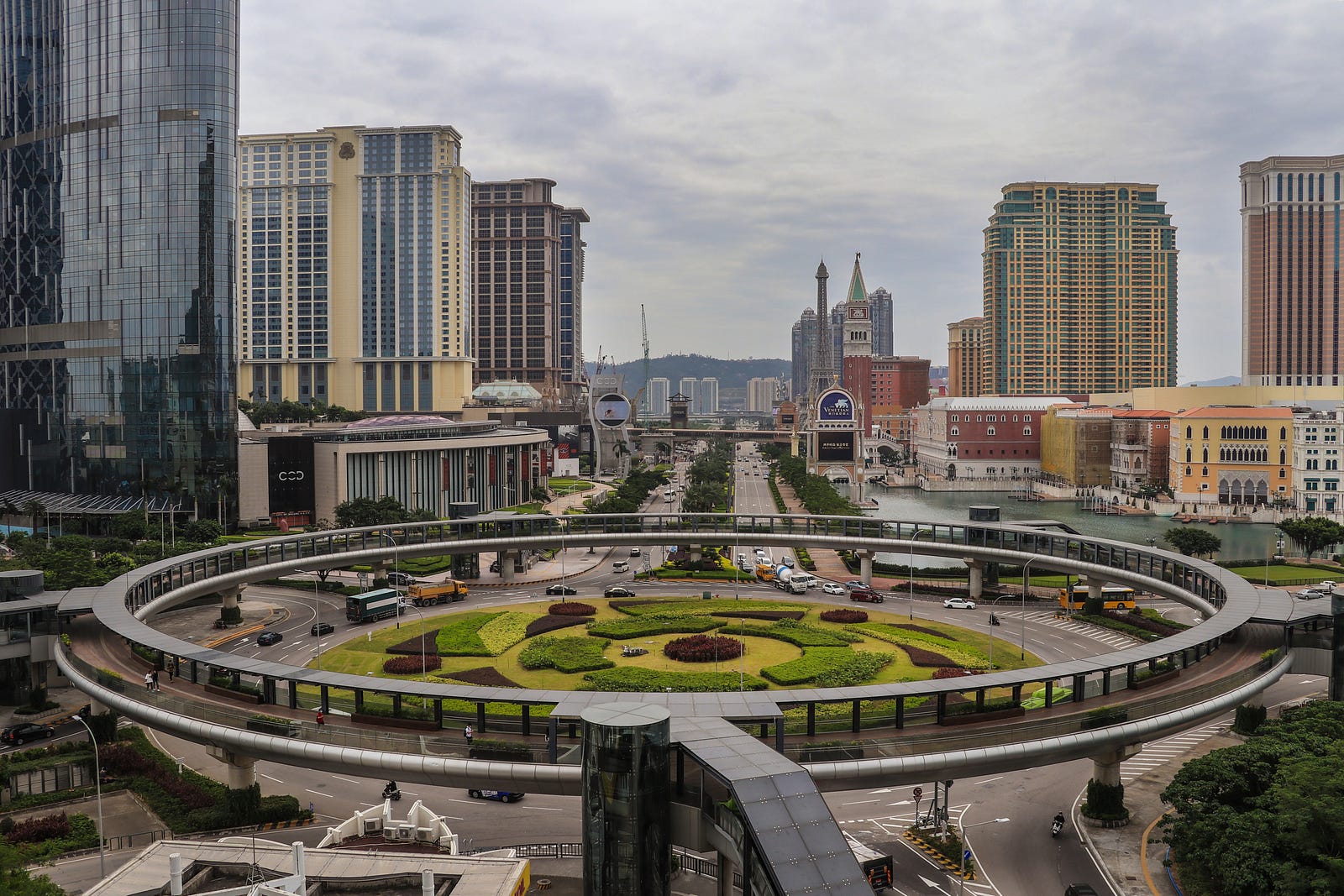Understanding My Identity as a Creator, Entrepreneur, and Investor
Also available on Medium.
For my mother, the iron woman:
In your triumphant, battered hymn, I now sing the song of history.
Miami Tech House
The first business I started was with Airbnb in Miami, FL in the fall of 2015. I was a 22 year old fresh college graduate, starting my first job in a startup. At the time, I had been gainfully employed as a software engineer for all of six weeks when my employer started missing payroll. In a panic, I called my mother and conspired an emergency plan: I would rent out my bedroom in Miami (rent basis: $873/mth) and work remotely from her house in Boston. Counter to stereotypes, my mother had been a far earlier adopter of Airbnb than her millennial son: by 2015, she had already been hosting travelers for a couple years. At that time, I had joked that my mother avoided ‘empty nest syndrome’ by monetizing my sister’s and my old bedrooms. In addition, while I grew up in a secure upbringing, our family’s economic mindset was also quite modest: 不要浪费, ‘never waste’, was the driving ethos that ran through our lives. As a result, since my employer wasn’t paying me, there would be no basis to deny my request to work remotely, especially to keep working for free, right?
Six months later, the company finally laid me off. At the time, I took it very personally, not knowing that the core business model of the company was the issue and years later its angel investors would sue the founder in a very public falling out. What I did know, at the time, was this: following the footsteps of my mother in generating side income via Airbnb gave me an enormous sense of control over my finances. I now had greater context why, despite my mother’s steady career as a public school teacher, she was working on entrepreneurial endeavors on the side to make more cash. Running a boring business like Airbnb had made money—money that was much more and much realer—than any of my whimsical startup ideas.
Two months later, when I started my next job at a large EdTech startup in another Miami neighborhood, I subleased my old bedroom and put down a $5,000 deposit to rent a four bedroom, two bathroom house. It was a classic old Florida single family house, and given my other part-time gig teaching computer science, I christened it the Miami Tech House, with the intent to turn it into a defacto student dormitory for coding bootcamp students. The business ended up returning 140% of my investment at the end of a very stressful year, a year where I did everything myself and was a maid/marketer/live-in landlord. I tribute that house as a turning point in my entrepreneurial journey.
An American Story

Although there are elements of this story that are applicable to any entrepreneurial journey, the combination of these elements are also undeniably ethnic, racial, and immigrant. Upon losing my pay, I panicked and called my mother, who had supplemented her income with Airbnb due to years of being a single income parent. How I chose to solve the problem was by listing my own bedroom on a home sharing platform, something that any child who has had their own bed turned out for a visiting auntie/uncle would be familiar with. I was raised in a household that was always stressing about money, so putting down the $5,000 deposit was terrifying to me: I remember calling my mother frequently about the anxiety of losing money. Instead of the myriad of businesses I’ve since encountered in other entrepreneurs, I defaulted to a hospitality and real estate business, the favorite asset of the ethnic Chinese everywhere. I waited too late till I hired help, because I had internalized from my parents that hiring and relying on others—especially Americans—would bankrupt my business.
In a previous piece, ‘Transitioning From Politics to Media Entrepreneurship,’ I recounted how I pivoted my career from politics to media entrepreneurship: I now run a newsletter and premium community for angel investors. Although I know people with my background and career are uncommon, I was genuinely surprised at the interest in how my ethnic, racial, and immigrant journey impacted my career. What was a casual paragraph about explaining my business to my parent’s generation ended up being a dog whistle to many readers from similar backgrounds. I intend this piece to serve as a follow-on to that essay, articulating how I understand my ethnic, national, racial, and newcomer status in the American journey.
Why Write About These Factors?

I never set out to be a race writer. Heaven hope I don’t become one.
Often, however, great and desirable careers require a greater deal of creativity. In turn, research shows time and time again that increasing creativity reflects and requires an ever greater integration of the whole self. In startups we use the term “founder psychology,’ to explain this phenomenon, and in politics we joke that ‘every candidate gets the campaign they deserve”. Read enough self-help books and you’ll find it’s identical to the literature of executive coaching. To pick startup winners correctly, I must develop a working understanding of numerous factors, including ethnicity, race, and how it impacts the founder’s journey.
Writing about my identity in this particular moment in time is extra surreal. When I started drafting this essay, violence towards Asian-Americans was a topic that was still infrequently covered by mainstream media. Since then, the shootings of Asian-Americans in Atlanta, GA, along with too many other tragedies, has thrust our community into a national moment of collective sense-making.
The Internet is built for the long tail and connection. When I look at my predecessors, I see how isolated Asian-Americans of an older generation were by comparison. Through the late 20th century, they paved the way for my generation to pursue more diversity in our own paths. In turn, by telling my story, I hope I can celebrate our narratives in a way that fosters greater understanding, solidarity, and power. Celebrating Americans—all Americans—is not a zero sum game: how America treats the outsider story is the true test of our national character. For those who share similar journeys out there, this piece is just as much for you as it is for my mother. Every day I write, I do so as a small form of protest: the American dream is both for us to claim and to redefine.
The Four Seasons of Identity

Ethnic
I am Chinese. My family is from Beijing, although my grandparents are from both Northern and Southern China. My grandparents lived through multiple Chinese civil wars, Japanese occupation, and the founding of the modern People’s Republic of China. My parents grew up during the Cultural Revolution, a period of ten years under Mao Zedong where all education was eliminated in favor of an ‘agrarian education’, and an estimated 10 to 50 million Chinese starved. After Mao’s death and Deng Xiaoping’s Chinese Economic Reform of the 1970s’, my parents successfully took the 高考 gaokao, or the Chinese SAT, and become among the first in a generation to attend university. My mother got a scholarship from her university to obtain her master’s abroad, and when the Chinese government cracked down on student protests in 1989, my mother got a work visa and eventual green card through the Chinese Student Protection Act of 1992.
National
I am American. I was born and raised in Boston, MA, though my mother sent me back to Beijing for several years when I was young. My mother tells me I was named for a singer and a historian, though the story is contested. Between the ages of 4 to 7, I lived with my grandparents in a giant courtyard of other Chinese kids, due to America’s unaffordable childcare costs and my mother’s need to reboot her career from bellhop to teacher. Casual google searches show me that this trend of sending children back to their ethnic motherland resulted in a generation of ‘satellite babies.’ Upon returning to the United States, I struggled with English for nearly a decade, ballooned in weight due to depressive eating, and subconsciously juxtaposed being in a foreign country where I was “normal” to my national country where I was not.
Racial
I am Asian-American. Fast forward to adulthood, and the beginnings of a burgeoning racial identity started to form in me. Never before had I lived in such a dense, American city, before New York, with so many other Asians. And in this case, it really is Asians—not just Chinese, but Koreans, Japanese, Filipino, Vietnamese, Taiwanese, Indians, HAPAs, and more. I work for, fundraise for, and generally contemplate the significance of being the first employee on the first major Asian-American male’s campaign for president this century. Socializing, both in those I found and those who found me, took on a life of its own. Previously, without realizing it, I had taken it for granted that these new American tendencies of mine would always need explaining. I started to notice that my identity was both inheritance and canvas: as much foisted upon me as it could be something to wield and make my own.
Son of Immigrants
I am the son of immigrant parents. And if I don’t mess up, my kids will be privileged little runts. They will have the confidence of a father who was born and raised in the American system, educated by the city of Boston and its New England Yankee culture, who had the luxury to work in technology, investments, politics and media. This gives me pause. I’d love my kids to speak Mandarin, to draw from the heritage that has supported me, and know the Chinese roots—good and bad—that have shaped them. I have conversations with other children of immigrants: is ‘making it’ in America the whitewashing and assimilation of our complex, inconvenient narratives? Or is there a way we can shed the brutal lived experience of being outsiders, while maintaining the dreams and aspirations of those who sacrificed for us?
Challenges to Being an Outsider

Identifying the threads of one’s identity and lived experience is one matter; linking said experiences to their impact is altogether different. Am I skeptical of institutions because the Chinese lived through such civil unrest? Or am I skeptical because I’m an immigrant to a nation whose institutions were made by and intended for a separate people? In my last job, one of my former hires was a young Polish immigrant and naturalized citizen. Was it hard to predict that our shared immigrant experience allowed us to laugh at the entitlement some legacy Americans had in the workplace?
These are subtle questions. But speaking from anecdotal observations, I’ve learned to quickly recognize various combinations of the following three themes.
Challenge 1: Codeswitching
At twenty eight, I am often complimented on how well-adjusted and culturally fluent I am in two dramatically different cultures. Unfortunately, ten years ago, I was, in essence, only half formed in each. Growing up in different cultural environments requires greater cognitive load. In my youth, I blamed myself for feeling deficient in both cultures. As an adult, I realize that the brain can only process so much at once. If I could speak to younger me, I’d encourage him to be less hard on himself, and help put his twin mandates of Chinese and American identities into the context of general human development.
Challenge 2: Scarcity
Newcomers to the American project often come with a ‘scarcity’ mindset: there is always a feeling of not enough cash, not enough time, and not enough security. Any form of risk taking (and it's inevitable mistakes) is too costly, social networks are scarce (never mind social safety nets), and there’s fewer models of success to follow. This mindset of ‘scarcity’ primes the individual to survive at all cost, but also becomes irrelevant, barring on harmful, in peaceful times.
The mindsets of scarcity and abundance were popularized by Harvard behavioral economist Sendhil Mullainathan in 2015. At that time, Mullainthan conducted a variety of studies showing that poverty, and the scarcity mindset, functionally reduced IQ in experiment participants by an entire level. To quote one of Mullainathan’s most famous studies with Indian sugarcane farmers:
‘Sugarcane farmers, they discovered, get their income in one lump sum at harvest time, just once or twice a year. That meant farmers were poor during one part of the year, and flush with cash during another. Because harvests took place at different times for different farmers, researchers could rule out seasonal weather, events, and their accompanying obligations as bandwidth-usurping factors. And when the researchers conducted a study there similar to the New Jersey mall experiment, the results mirrored their original findings: the Indian farmers performed worse on Raven’s Matrices tests (essentially IQ tests that measure skills without requiring experience or expertise) before their harvest, and better after they’d been paid.’
"The Science of Scarcity", Harvard Magazine 2015
Concretely, fear of losing money often blinded me to lucrative opportunities to build wealth. Optimizing for the safest jobs then stopped me from pursuing my life’s calling, earlier. As it turns out, living a life focused purely on surviving didn’t leave much room for a life of thriving. In my last job, ‘scarcity’ caused me to build a team too late, wasting countless man-hours both of my own and my team due to egregious concern for saving money over maximizing time. A mindset of scarcity is a state of constant background stress that serves as a constant tax on my cognitive ability, and I continue to take great pains to work on it both as an executive and an individual.
Challenge 3: Distrust
During the Chinese Cultural Revolution, citizens were encouraged to report each other to the Red Guard and report any bourgeoisie or pro-right sentiment. This ended in neighbor turning against neighbor, even children turning against their parents, to demonstrate loyalty to the communist party. Decades later, my parents would continue to discourage me from telling others too much, for fear of exposing any weak spots and opening myself up to attack.
I started blogging as early as 2011, but for years, was terrified to attach anything to my name in case trouble found its way back to me. Many years later, and only with some professional experience under my belt, did I finally start a new and final blog under my own name, the result of which became my current business. If I had not inherited that paranoia and fear, I imagine I would have several more years of writing in my portfolio, subscribers in my mailing list, and opportunities from my blog. Even now, you can imagine how thrilled my parents are that I currently:
- Draw attention to myself,
- Publish my personal experience for the Internet to hold over me as blackmail and,
- Draw my income from a completely ephemeral community of Internet strangers.
Opportunities to Being an Outsider

On the other side of despair, my identity has also greatly informed my work. At present, I literally get paid for my ideas, and so far as we’re willing to use revenue as a crude but sufficient proxy of value, my ideas are worth a lot more than many others. When I reflect on what characteristics of my identity help make my ideas market competitive, I return to a combination of the following that I believe are hallmarks of my identity:
Opportunity 1: Codebreaking
On the other side of codeswitching, there’s codebreaking. As someone existing between radically different worlds, the act of translating has forced me to gain greater precision in understanding truth. What is the American “friends and family” round but the Chinese guanxi? Are Chinese businesses really that remarkable for cloning American businesses, when American businesses copied Europe’s industrial revolution and proceeded to implement mercantilist policies? My subscribers have regularly commented that my deal memos are valuable to them because they are written for the outsider: instead of writing with the ambiguous fluff of a traditional venture capitalist, I write like a software engineer, thereby bringing more outsiders into a traditionally closed club. In another example, Priya Parker writes in The Art of Gathering about how social organizers and hosts similarly welcome outsiders by explicitly sharing the rules of etiquette and eliminating the ambiguity of coded language for a gathering.
Opportunity 2: Perspective
Outside matters of facts and falsehood, there are matters that benefit from different lenses of truth. I once wrote a business translation of a passage from Jean-Paul Sartre’s Being and Nothingness where I asked, “Does this mean that by reducing the company to its balance sheets we have succeeded in overcoming all investor debates about an accurate valuation? It seems rather that we have converted them into a new dualism: that of cash flows and equity.”
As the first in my family to pursue entrepreneurship as a full-time career, I joke that my mother is a ‘revenue first’ parent. What some might read as a lack of her support for entrepreneurship, I merely see as her valuing cash flow significantly more than equity. Although this perspective is significantly more traditional than most startup orthodoxy, I find it fair and objective: this is why subscriber and revenue growth has multiplied significance for me. Even as an investor, I find myself preferring real businesses with real revenue. Surprisingly, this belief in boring fundamentals in the land of startups then makes me more trustworthy than most of my analytical competition.
Opportunity 3: Real Americans
In many ways, the American project would be meaningless without outsiders. Outsiders come with the benefits of being free of legacy: when you’re new to a country, you aren’t tied into a place, career, or a way of doing things. Legacy Americans might be able to lean more easily on the sacrifices of their parents and early forefathers, but that security can be just as suffocating. As a first generation American, there were zero expectations when I worked in entrepreneurship, politics, or media. Without a name to sully, and a clear but broad goal of “revenue growth,” I have infinite space to make this thing work, since by definition, I’m unprecedented. America wasn’t built off the complacent: it was built off of hungry, competent outsiders who were determined to remake this society in their image. If America really bills itself as a country of immigrants, then we outsiders are the real Americans.
From the Tiger’s Mouth

In 2011, Amy Chua set off a national discussion in Chinese households with her book and memoir Battle Hymn of the Tiger Mother. When chatting with my mother about this piece, she asked me if I remembered Amy Chua’s book. After I confirmed remembering the book, my mother remarked “It’s funny, now that I think about it, we never really heard from the daughters’ perspective about receiving that parenting.”
Although I have plenty of talented, diverse entrepreneur peers, no one has my mother. This is both a point of pride and sadness: the majority of my friends who are afraid to explore their calling in their careers cite lack of family support as a major impediment. My mother and I joke all the time about so-and-so’s son/daughter who doesn’t answer the parents call, and vice-versa, the completely clueless parents who fail in every way to connect with their kids. How much healing, joy, and societal benefit would greater understanding, in this specific parent/child dynamic, create?
If reading a perspective like mine on this journey is rare, hearing the perspective of a reluctant mother is completely unheard of. And so, to close out this essay, allow me to loan you my mother for a few hundred words as she tells the story from a parent’s perspective:
From the Author's Mother
Being a college teacher in Beijing for 5 years, and a public high school teacher for almost 30 years in the United States, my working experiences have always been related to the government. In Chinese, we call it working “in the system(体制内)“。Like many other Chinese mothers, I am a traditional mom. I want my son to have the best life in this beautiful country, which means going to a good school, studying for a popular major, finding a good job afterwards; getting married and having several kids. It is the typical ”American Dream”. In China, with the “One Child Policy”, my son would not have the chance to live in this world. By all means he deserves the best.
However, a mother's dream is not usually a son's dream. It took me a very long time to realize what my son wants to do with his life. He doesn’t want to work in any system and work for anyone else, but for himself. With my teaching background, I understand that communication with youngsters, no matter if they are your children or students, is the key to avoiding a confrontational relationship.
Muhan and I started the conversation 10 years ago. We had never agreed with each other 100% on anything, but we tried to be honest with the disagreement and gave each other a space to work on the solution. With this open communication Muhan and I have formed a very special relationship, half friends and half business partners, besides mother and son’s relationship.
I can not say yet I understand everything that Muhan is doing now, but as long as he is happy with what he is doing, I am happy. My takeaway closing statement for the parents who happen to read this paragraph is this:
“It is your children’s lives, let them make decisions for themselves. Our jobs as parents are to help. If we can not help, at least don’t stand in their ways. If we can not be a perfect mom, let’s not be a harmful mom.”
Muhan Zhang is the founder and editor of Startup Investing for All, a premium community for angel investors seeking better returns, together. Previously, he was employee number one and Chief Operating Officer of the Andrew Yang 2020 campaign for president. He writes at www.muhanzhang.com about founders, funders, and real people doing unreal things.

